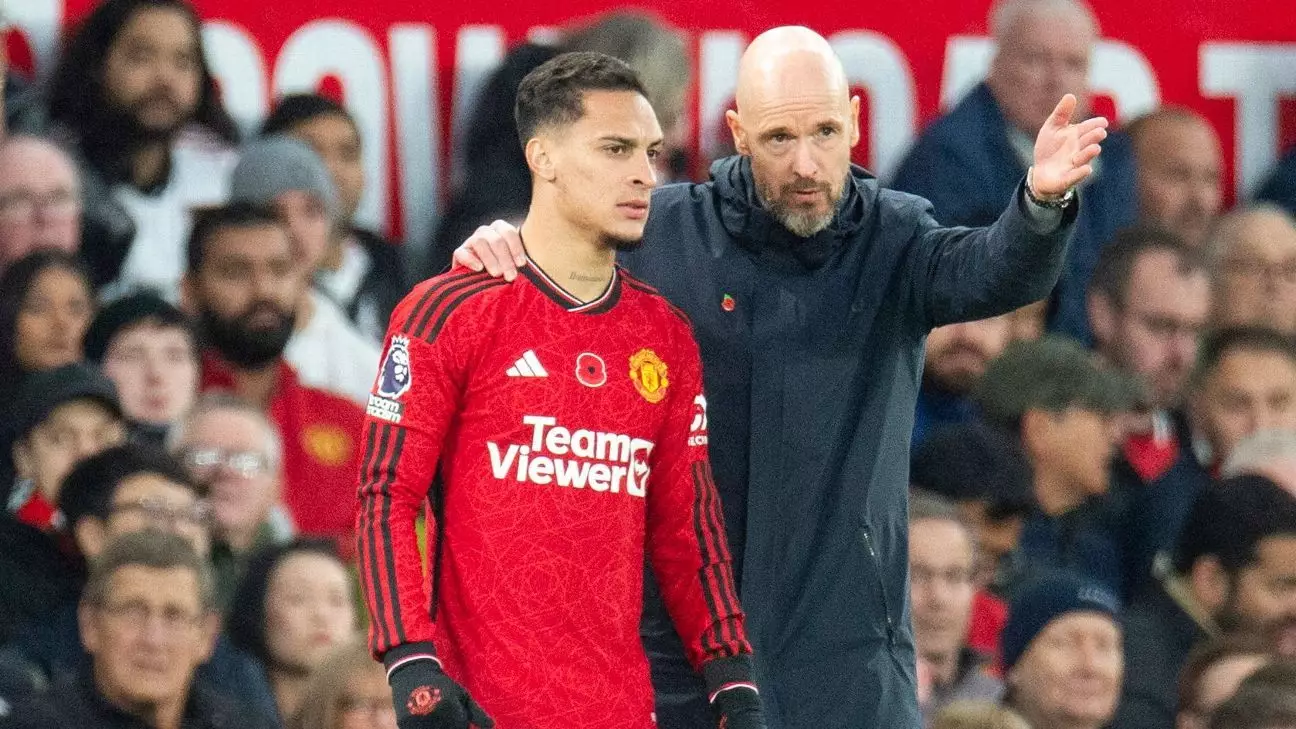The world of football never stops, and as Erik ten Hag steps into the managerial role at Bayer Leverkusen, an intriguing wave of transfer activity begins to unfold. Ten Hag’s history with Manchester United forward Antony showcases the tight-knit networks that often shape transfer decisions. With Antony’s recent success at Real Betis, scoring nine goals in just 24 appearances during a loan spell, it’s clear he’s back on the radar after being deemed surplus to requirements at United. The unit cost for Leverkusen will largely depend on the proceeds from Florian Wirtz’s expected transfer to Liverpool for a staggering £100 million. Ten Hag’s eagerness to reunite with Antony could signify a trend of clubs capitalizing on well-known assets rather than taking gambles on lesser-known talent, as old connections often drive successful outcomes.
This brings forth the larger narrative in football — the intertwining of reputation, past success, and potential among players and coaches. Ten Hag’s approach to transfers can be seen as a reliance on familiarity and demonstrated capability. Whether he can replicate the success at Ajax remains to be seen, but the strategy of reclaiming familiar talent is a gamble that many managers are opting for in today’s hyper-competitive market.
Arsenal’s Ambitious Targeting Strategy
Arsenal’s recent interest in players like Aston Villa’s Morgan Rogers and Feyenoord’s Igor Paixão suggests an aggressive stance in the ongoing transfer season. Rogers, a bright 22-year-old talent, offers a potent combination of skill and potential, after registering eight goals and 11 assists in the Premier League last season. However, standing in Arsenal’s way is Rogers’ long-term contract with Villa, which makes any potential deal not just challenging but costly.
On the other hand, Paixão seems to be a more accessible target, characterized by his affordable price tag, but he also represents a treasure trove of untapped promise. This duality in Arsenal’s approach reflects a tactical understanding that balancing financial viability with the demand for star quality is crucial. In an age when finances can dictate success, adapting to both high-profile signings and budget-friendly gambles becomes paramount. The urgency with which potential deals are being perceived in the current window may set the tone for Arsenal’s approach moving forward, especially in light of their recent performances.
Bayern’s Intense Pursuit of Forward Talent
Bayern Munich’s reported interests in Liverpool’s Cody Gakpo and AC Milan’s Rafael Leão underscore a broader pivot towards attacking reinforcements in the Bundesliga. The German champions’ need for urgency is evident, as both players are expected to command substantial transfer fees, potentially starting from €70 million. This could necessitate offloading some squad members to balance the financials, thus raising the stakes in the transfer market.
The reactivity of Bayern’s strategy reflects a larger trend where big clubs are continually adjusting their rosters to remain competitive on multiple fronts. With performance expectations constantly rising, the club’s need for a prolific attack could steer not only their financial decisions but also how they structure their team around these key acquisitions.
Manchester United’s Pursuit of Striking Power
Manchester United’s intentions to secure Brentford’s Bryan Mbeumo point to a clear goal: finding fresh attacking talent to reinvigorate their squad. Despite the initial bid reportedly falling short of Brentford’s demands, Mbeumo has made it known that he’s eager for a move to Old Trafford. This suggests not only the player’s desire but also a mutual acknowledgment of the challenges associated with navigating transfer negotiations.
Is this indicative of a broader trend within football, where clubs prioritize accomplished players willing to commit to their vision, yet struggle against the hard-nosed realities of negotiation? United’s hesitance to meet Brentford’s asking price illustrates this dichotomy, raising questions about how financial prudence can walk hand-in-hand with the need for immediate excellence on the field.
Emerging Trends in Global Transfers
Deals often extend beyond the field, with global markets increasingly shaping the football transfer landscape. Clubs such as Newcastle United have showcased their ambition by signing young talents like Antonio Cordero. Investments in fresh, untapped potential provide a dual benefit: growth in player value and long-term strategic success. Similarly, clubs like Liverpool are attempting to redefine their assets with immediate signings like Bournemouth’s Milos Kerkez, although hurdles are apparent.
As markets become more globalized, the negotiations reflect broader economic principles in play, influencing strategies and fostering competitive dynamics among clubs. In this summer window, clubs are pushed to balance immediate needs and long-term aspirations, creating a rich tapestry for developments that transcend traditional team-building approaches.
In sum, as summer transfers unfold, the interplay of strategy, ambition, and financial maneuvering promises to make this window not just a season of change, but a transformative period in shaping the future landscape of football.

